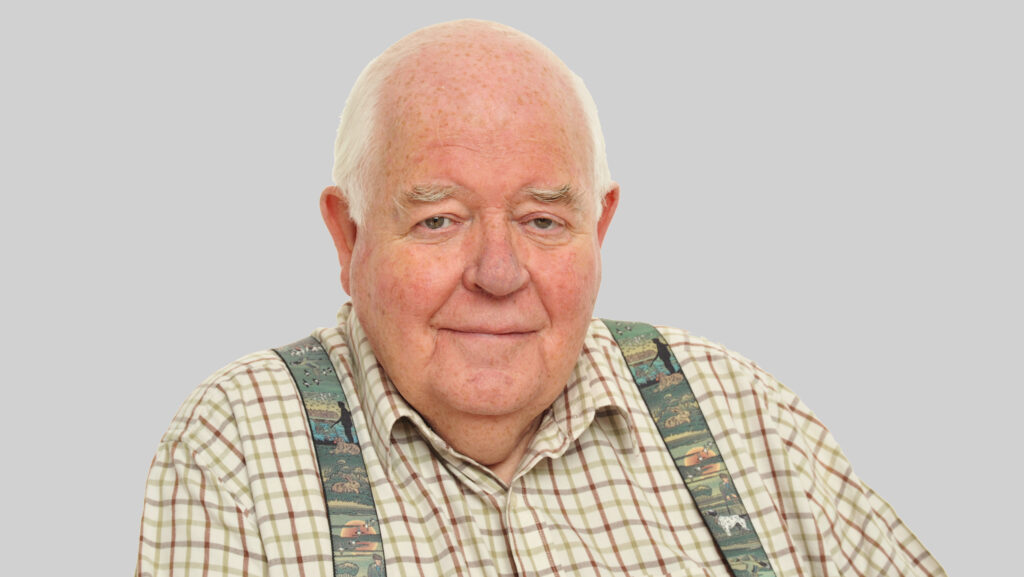Opinion: David Richardson was a towering figure in farming
 David Richardson © MAG
David Richardson © MAG The sad news of David Richardson’s death last week arrived just a few hours before the deadline for submitting this column.
As one would expect from the ultimate farming journalist, he presented a timely opportunity to pay tribute to him in the space that he occupied so masterfully for three decades.
If you are a younger reader who only remembers David as one of farming’s elder statesman, you should read one of his books to see how relevant he was at each stage of his long life and how famous and influential he was at the beginning of his journalistic career.
See also: Opinion – Connecting with my ‘caveman’ sparks a revelation
David had already been a fixture in this magazine for well over a decade when I joined as an opinion writer. He was a towering figure in agriculture – both physically and culturally.
I still remember how intimidated I felt when I first met him. He was like a Roman emperor and I was struck with a keen sense of my own triviality and lack of experience.
As we grew to know one another across our opposing sides of the staples, we learned we shared the same values, we just expressed them differently.
I became extremely fond of him and Lorna, his late wife, and enjoyed spending time with them.
I admired and was inspired by the life that they created together; a picturesque and diversified farm with their family around them, a vast network of friends and a marriage full of rich, shared experiences.
Although he always had a wonderful, dry sense of humour, David came from a generation for whom farming was a serious profession.
He never forgot the hardship of war or the rationing he experienced at first-hand. He was a significant member of the cohort who created the highly productive post-war farming industry that was needed at the time.
For them, maintaining a strong, domestic farming industry was about much more than individual prosperity.
It was a demonstration of David’s foresight that, in the 1990s as food mountains were building, he created Leaf to encourage the protection of the environment alongside productive agriculture.
But he wasn’t a man who sought to tell others what to do. He thought like a journalist, not a politician, and he influenced events by convening people, conveying ideas and sharing evidence.
David’s heartfelt commitment to farmers’ success meant that he wasn’t perfectly cast as an opinion writer. It was as a farming commentator where he was pre-eminent.
His continued return to the subject of “food security” was a curse to any editor, but David could never accept the complacency with which modern governments treated food production. I predict that history will judge him well.
David began presenting farming programmes when TV was in its infancy, when presenters had gravitas and sought facts and truths, and he maintained that journalistic integrity right through his radio broadcasts, newspaper columns and latterly in his blog and tweets.
These days, when anyone with a telephone can be a broadcaster, where unqualified opinions are presented as facts and where profile is prized over impact, David’s loss will be felt more than ever.
In his death, we lose not just a great man but a whole way of communicating our subject.

